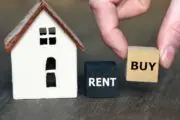Photo by Nolan Issac on Unsplash
A new law aimed at curbing corporate ownership of foreclosed properties is set to take effect on January 1, 2021.
SB 1079, known as Homes for Homeowners, Not Corporations, was authored by Senator Nancy Skinner, D-Berkeley. It passed through the California Legislature in late August and was signed into law by Governor Gavin Newsom the following month.
Under the new law, if an investor wins a foreclosure auction for a residential property with one to four units, owner-occupants, tenants, local governments and housing nonprofits will have 45 days to make a competing offer.
Current tenants would need to match the offer, while other non-corporate entities would have to outbid it. To make this information publicly available, the auctioneer would be required to maintain a website and a telephone number advertising the property in question and its bid price. Bundled auction sales, in which multiple properties are sold to a single buyer, would also be prohibited.
Additionally, SB 1079 permits local governments to impose higher fines on investment properties that are poorly maintained or vacant in an effort to increase housing supply and encourage upkeep.
Between 2006 and 2012, owner-occupied single-family homes in California decreased by 320,000 as renter-occupied single-family homes increased by over 720,000. Corporate landlords profited tremendously from the 2008 housing crisis, purchasing properties en masse at deeply discounted prices.
Homes for Homeowners, Not Corporations was introduced several months into the COVID-19 pandemic as foreclosure fears intensified across the country. The law is intended to give would-be owner-occupants the upper hand in the foreclosure auction process, although there are certain risks involved with purchasing these types of properties.
It can be difficult for individuals to secure financing, conduct an inspection or estimate repair costs on a foreclosed home, while investors often pay all cash and have reserve funds to draw from in emergency situations.
SB 1079 will expire on January 1, 2026, unless state lawmakers vote to expunge or extend it beyond that date.







